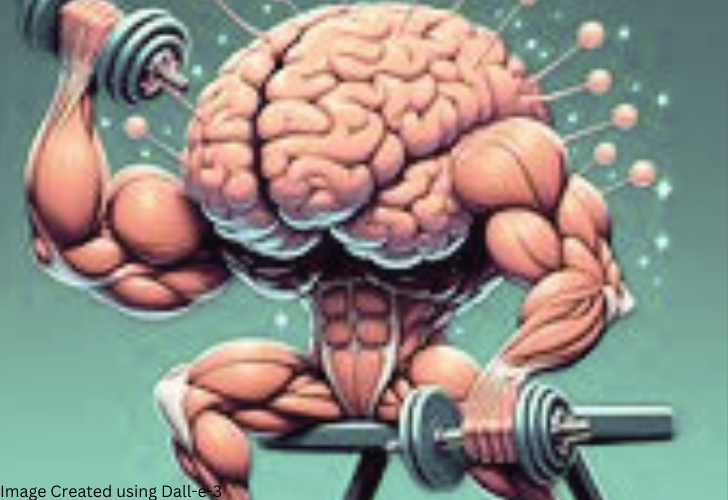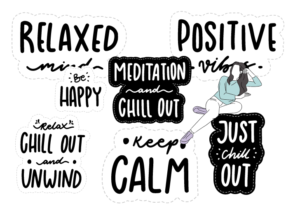
Muscle Memory
I. Introduction
Many times people assume that their muscles will remember anything they learned, like how to ride a bike or dance? That’s not quite right, though. In actuality, your brain, not your muscles, is the one that remembers. It’s as if your brain keeps a special journal in which it records all of the things you practice frequently, making it simple to perform those activities again even after a prolonged absence. Therefore, whenever you hear the term “muscle memory,” it is actually your extremely intelligent brain remembering everything you’ve learned!
Definition of muscle memory
Muscle memory is a type of procedural memory that is created by repeatedly committing a particular muscular task. Muscle memory is interchangeably used with motor learning.
A movement can be executed with little conscious effort when it is repeated over time because the brain develops long-term muscle memory for that action. This process maximizes the efficiency of the motor and memory systems while lowering the requirement for attention.
Common misconceptions about muscle memory
Many times people assume that their muscles will remember anything they learned, like how to ride a bike or dance? That’s not quite accurate, though. In actuality, your brain, not your muscles, is the one that remembers. It’s as if your brain keeps a special journal in which it records all of the things you practice frequently, making it simple to perform those activities again even after a prolonged absence. Therefore, whenever you hear the term “muscle memory,” it’s actually your extremely intelligent brain remembering everything you’ve learned!
Overview of its significance in fitness programs
Muscle memory is a crucial component of fitness since it functions as a kind of unnoticed assistant, ensuring that your performance on exercises improves with each repetition. Similar to how you gain better scores every time you play a video game, this is because you’re picking up new movements and becoming quicker without even realizing it. Similarly, when you continue to perform your exercises, your body learns to recall them and improves your performance the next time. Thus, muscle memory can be thought of as your body’s method of rewarding you for your hard work and physical progress!
II. The Neurological Basis of Muscle Memory
The intricate relationship between the brain and the nerve system forms the neurological foundation of muscle memory. For a technical explanation:
1. Neural Pathway Formation: The brain creates new neural pathways when a new skill is learned. The primary motor cortex is essential for initiating and regulating voluntary movements, and these connections link areas involved in motor planning and execution.
2. Synaptic Changes: Strengthening the synapses—the connections between neurons—is necessary while learning a new motor activity. Practiced motions increase the efficiency of these synaptic connections, which facilitates faster and more reliable signal transmission throughout the brain pathways1.
3. Neuromuscular Adaptations: In addition to these alterations at the muscular level, muscle memory also include recruitment of motor units and adaptations of muscle fibers. These modifications enhance the way the brain and muscles communicate, creating effective neural pathways for the targeted actions.1.
4. Synaptic Plasticity and Myelin Formation: The brain’s synapses can adapt and change as a result of repeated exercise. Furthermore, these routes are surrounded by the formation of myelin, a fatty substance that insulates nerve fibers and speeds up signal transmission.
5. Cognitive Component: Another part of muscle memory is cognitive, in which the brain “learns” and “remembers” the movement patterns, increasing automaticity and reducing the need for conscious thought while doing the activity in the future1.
Practice and repetition lead to a reduction in cognitive load and an increase in task efficiency, which is supported by this neurological framework.
Explanation of motor skills and neural pathways
Consider motor skills as the abilities your body gains to move and perform amazing tasks, such as dancing, jumping, or assembling a sandwich. Your muscles receive specific instructions from your brain, which functions like a superhero team captain, telling them what to do.
Neural pathways, then, are secret passageways within your brain that facilitate the rapid transmission of these commands. A cartwheel is one of those moves that becomes stronger the more you practice it. It’s similar to walking on your favorite, most-traveled path through the woods—you could do it with your eyes closed!
Thus, as you practice, the pathways in your brain become more adept at communicating to your muscles how to perform those amazing movements without requiring conscious thought. You master motor skills in this way!
IV. Muscle Memory and Fitness Training
Here’s why, on your fitness journey, muscle memory is like having a superhero sidekick:
Mastering Moves: Your brain makes notes throughout exercise, such as squats, push-ups, and yoga positions. It picks up and refines the patterns. Your brain gets more adept at giving your muscles instructions as you repeat things.
Reps Without Effort: Ever notice how those dance steps or lunges become smoother after a while? That’s the effect of muscle memory! Every rep becomes easier because your muscles retain the movements. It resembles a fitness cheat code.
Consistency Booster: Muscle memory preserves your progress when life gets hectic, which it frequently does. The movements stick in your body even when you take a rest. You won’t have to start again when you resume your workout.
Building Confidence: You’ll feel more confident knowing that your body retains information. You can succeed at this! Muscle memory says, “You’ve got superpowers!” whether you’re lifting weights, performing a plank, or killing a dance routine.
Every leap, stretch, and squat you perform adds to your muscle memory bank. Thus, keep exercising, keep moving, and let your superpower for fitness show!





